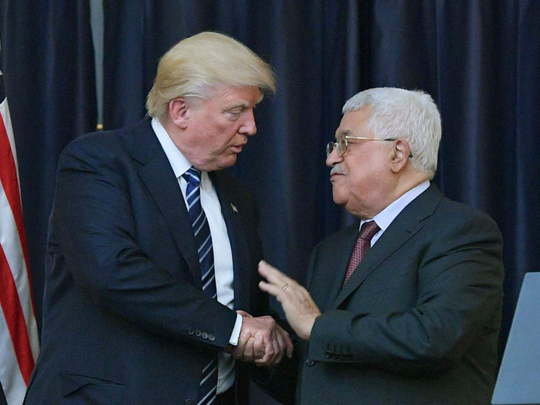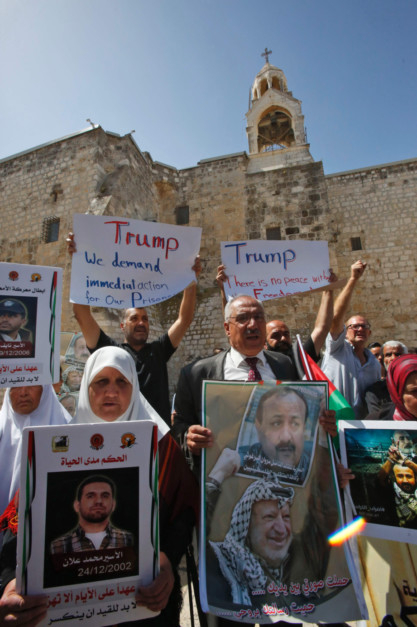
Jerusalem: US President Donald Trump used his centrepiece Holy Land speech on Tuesday to reaffirm his commitment to peace between Israelis and Palestinians, but he offered no new details on how to achieve a goal that has eluded US leaders for decades.
Rounding out a 28-hour stay in Jerusalem, Trump praised Israeli Prime Minister Benjamin Netanyahu and Palestinian President Mahmoud Abbas alike, saying both were ready for peace.
But he avoided any mention of a Palestinian state and did not address a campaign promise to move the US. Embassy from Tel Aviv to Jerusalem, something Netanyahu yearns for.
“I had a meeting this morning with President Abbas and can tell you that the Palestinians are ready to reach for peace,” Trump said in a speech at the Israel Museum in Jerusalem.
“In my meeting with my very good friend Benjamin, I can tell you also that he is reaching for peace. He wants peace,” he said. “Making peace, however, will not be easy. We all know that. Both sides will face tough decisions. But with determination, compromise, and the belief that peace is possible, Israelis and Palestinians can make a deal.” While Trump has spoken frequently in the months since taking office of his desire to achieve what he has dubbed the “ultimate deal”, he has not fleshed out any strategy that he or his administration might have towards achieving it.
A longtime businessman, Trump has cast Middle East peace as the “ultimate deal” and has tasked his son-in-law Jared Kushner and former real estate lawyer Jason Greenblatt with charting a course forward. Still, White House officials had downplayed the prospects for a breakthrough on this trip, saying it was important to manage their ambitions as they wade into terrain that has tripped up more experienced diplomats.
The president notably avoided all of the thorny issues that have stymied peace efforts for decades. He did not weigh in Israeli colonies, the status of Jerusalem or even whether the US would continue to insist on a two-state solution giving the Palestinians sovereign territory.
Aides said the approach was purposeful, and the normally freewheeling Trump was well-aware of the risks of veering off script on issue where every word is intensely scrutinised.
From Israel, Trump was heading to Italy for an audience with Pope Francis. He’ll close his ambitious first foreign trip at a pair of summits in Brussels and Sicily, where his reception from European leaders may be less effusive than his welcome in Israel and Saudi Arabia, his opening stop on the trip.
Trump and Netanyahu in particular lavished praise on each other during their multiple meetings. At the same time, Abbas and the Palestinians have been pleasantly surprised by their dealings with Trump. On Tuesday morning, Trump met with Abbas in Bethlehem, travelling across the barrier surrounding much of the biblical city, which serves as a visual reminder of the complexities of the conflict in the region.
Abbas said he was keen to “keep the door open to dialogue with our Israeli neighbours.” He reiterated the Palestinians’ demands, including establishing a capital in East Jerusalem, territory Israel claims as well, insisting that “our problem is not with the Jewish religion, it’s with the occupation and colonies, and with Israel not recognising the state of Palestine.”
After his meeting with Abbas, Trump returned to Jerusalem for a solemn tribute to the 6 million Jews killed in the Holocaust.
Trump’s visit to Jerusalem has been laden with religious symbolism. He toured the Church of the Holy Sepulchre, which by Christian tradition is where Jesus was crucified and the location of his tomb. Wearing a black skullcap, he became the first sitting president to visit the Western Wall in Jerusalem’s Old City, the most holy site at which Jews can pray.
The visit raised questions about whether the US would indicate the site is Israeli territory. The US has never recognised Israeli sovereignty over parts of the Old City seized in the 1967 war.
— Reuters & AP











